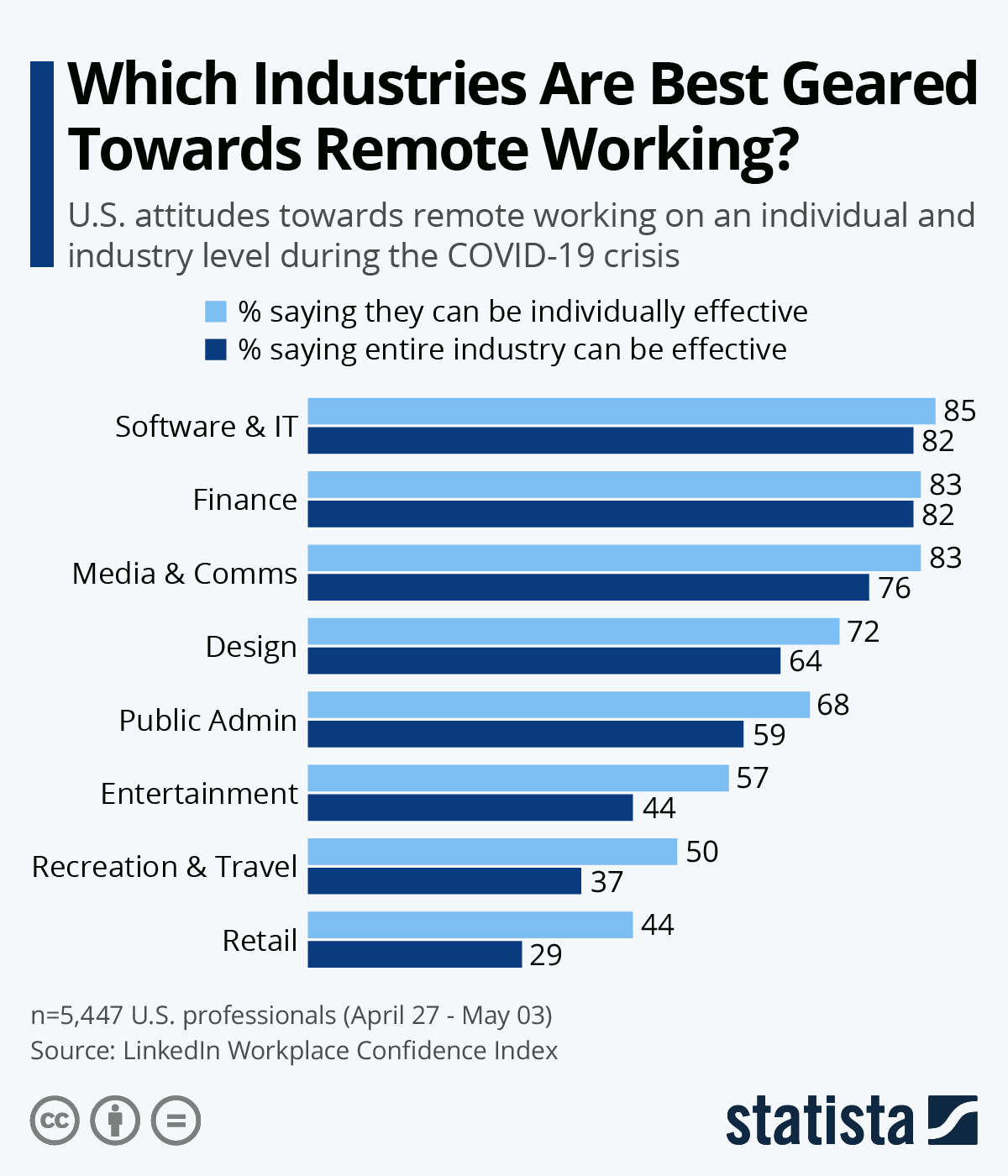Remote working has become the new normal for countless Americans as the coronavirus pandemic continues to cause massive disruption. The arrangement does have its advantages such as a lack of commuting which saves both time and gas, while there are fewer office distractions and increased flexibility. There are some negatives as well of course, whether its a lack of social interaction, distractions from family or a lack of face-to-face meetings. The latter is being alleviated to some degree by technological solutions like Zoom while many employers have reported higher levels of motivation and productivity. LinkedIn recently conducted an analysis of current confidence levels in remote working among U.S. professionals and feelings are generally positive.
The LinkedIn Workforce Confidence Index found that there are, perhaps unsurprisingly, higher levels of support for remote working in digital occupations requiring less physical contact. 85 percent of software and IT workers said they can be individually effective when working remotely while 82 percent felt the entire industry could be effective. That confidence is underscored by Twitter's recent announcement that it would allow all of its employees to work remotely on a permanent basis if they so desire, a move some observers called "era-defining". The trend is also positive in finance where over 80 percent say they and the wider industry are effective while working remotely.
Understandably, support is lower in industries that involve higher levels of human contact. Just 29 percent of people employed in the retail sector think that the industry could remain effective through remote working. The figure does rise slightly on an individual basis, however, to 44 percent. It remains to be seen if the new COVID-19 working arrangements are here to stay but judging by Twitter's bold move, the signs are looking positive for workers in digital occupations at least.
The LinkedIn Workforce Confidence Index found that there are, perhaps unsurprisingly, higher levels of support for remote working in digital occupations requiring less physical contact. 85 percent of software and IT workers said they can be individually effective when working remotely while 82 percent felt the entire industry could be effective. That confidence is underscored by Twitter's recent announcement that it would allow all of its employees to work remotely on a permanent basis if they so desire, a move some observers called "era-defining". The trend is also positive in finance where over 80 percent say they and the wider industry are effective while working remotely.
Understandably, support is lower in industries that involve higher levels of human contact. Just 29 percent of people employed in the retail sector think that the industry could remain effective through remote working. The figure does rise slightly on an individual basis, however, to 44 percent. It remains to be seen if the new COVID-19 working arrangements are here to stay but judging by Twitter's bold move, the signs are looking positive for workers in digital occupations at least.

No comments:
Post a Comment